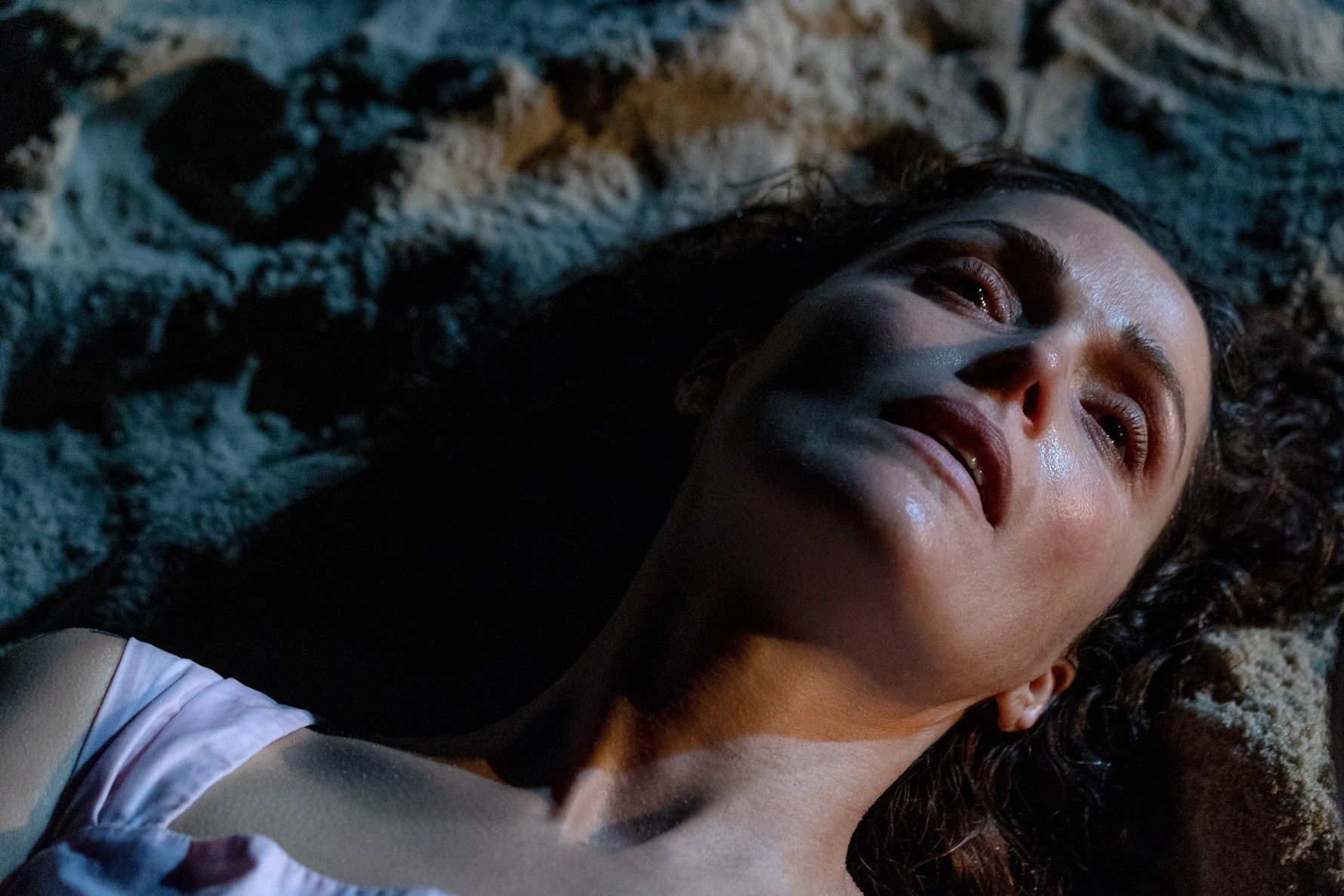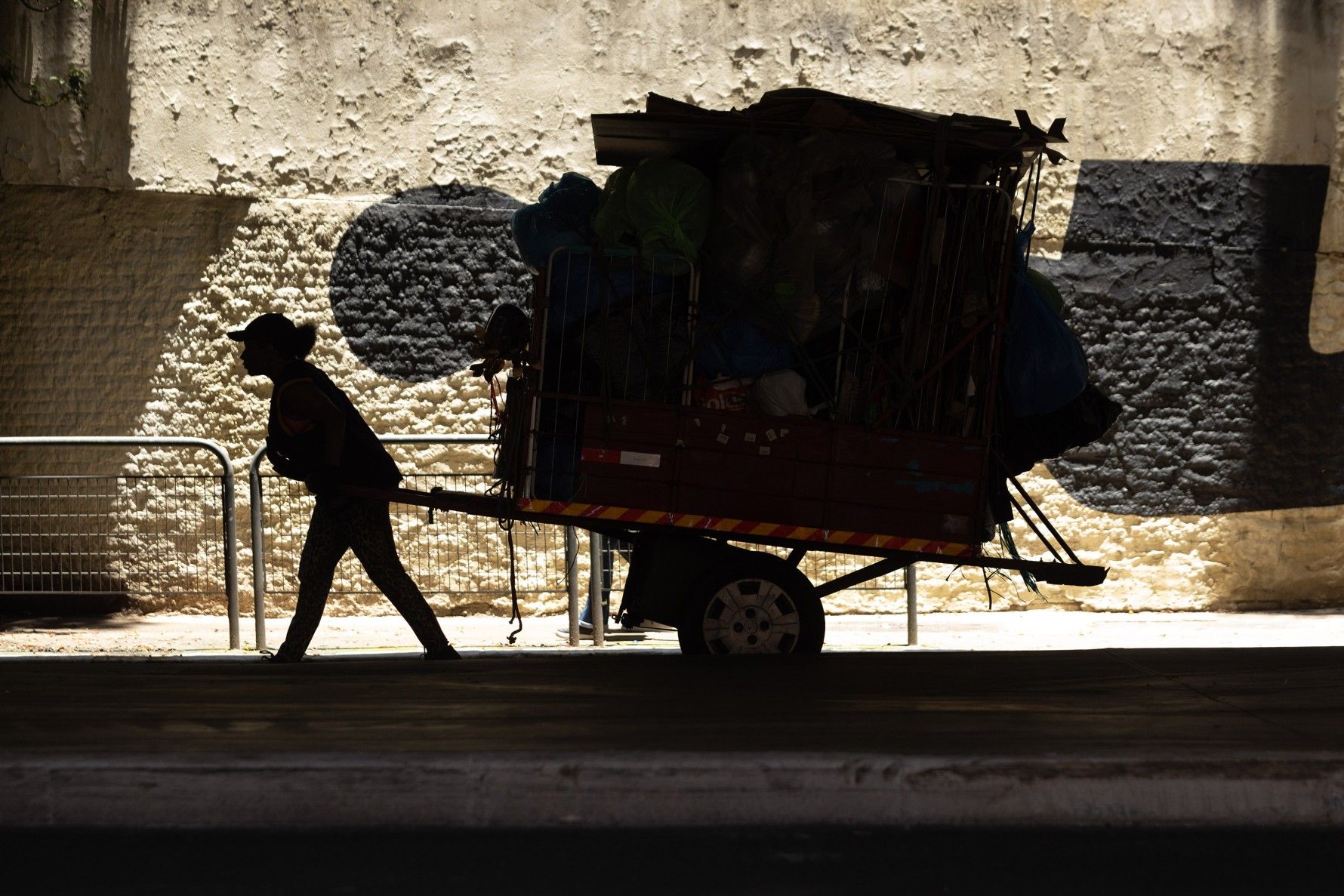Empathy beckons: If I Had Legs I’d Kick You & The Best Mother in the World

There are gaping holes in If I Had Legs I'd Kick You (2024), Mary Bronstein’s electric sophomore feature that comes 17 years after Yeast (2008) and screens in competition at the 75th Berlinale, following its world premiere at Sundance. Linda (Rose Byrne), a high-strung psychotherapist, lives in a house with a collapsed ceiling that has left a hole in its aftermath. Her daughter has a tube going into her stomach through an incision, and her endless shrill pleas—for a hamster, for her father, for help—accompany the waking hours of her mother. They are so pervasive that they appear to be leaking from Linda’s mind which, the film ominously suggests, might have the largest gash.
If I Had Legs I'd Kick You follows in a long line of films that tackle the complexity of mothers and motherhood. It takes an accessible premise of a woman taking care of her ill child and examines the physical and mental toll it takes by focusing on the caregiver and not the receiver (the name of her daughter is not revealed and her face, only, at the end). The result is an emotionally corroding narrative that mimics the anxiousness that comes with the experience of motherhood.
Linda has a lot going on. Her daughter needs to urgently gain weight in order for the tube to be extracted out of her stomach; their house is crumpling and they are camped out in a shady hotel; her patients despairingly look to Linda as though she has the answers to questions she herself is grappling with, and her naval captain husband (Christian Slater) is away at sea expecting his wife to contentedly handle it all.
Although devoted to taking care of her child, Linda tries insulating herself with an urgency that feels like self-preservation. She aimlessly saunters downstairs to the convenience store to binge on alcohol and drugs, and keeps going back to her old apartment for a moment of respite. All the while Linda carries the remote that tracks the anxious breathing of her daughter that plays out in unison with her own.
Using the scaffolding of chaos, which gets amplified with the tight framing of Linda’s perpetually-exhausted face, Bronstein puts forth an unembellished portrait of maternal care that is at the same time frenetic and throbbing with loneliness. The story originated out of a personal crisis the filmmaker was going through with her own daughter, and the emotional candidness and empathy suffused in every frame of If I Had Legs I'd Kick You confirms this.
Bronstein crafts Linda as a likeable, if extremely fatigued mother who is doing all she can to hold things together, even when the labour demanded of her feels infinite. The uncertainty of the situation manifests in feelings of abandonment—in one scene, she tells other mothers that the system has been designed for them to fail. During the multiple sessions with her therapist (Conan O'Brien), her recurrent question is: what should she do? Can he tell her? Can someone?
This existential query assumes functional pointedness in Bronstein’s film, where at least two women, Linda and her young patient Caroline (Danielle Macdonald), desperately search for guidance and a roadmap to be a good mother. And, in turn, they look for their mothers in others. Caroline assumes that Linda, her therapist, worries about her even beyond their session and the latter is given attributes, like unhealthy eating habits, which suggests she might be a child herself.
Contrary to what it might seem, Bronstein does not infantilise these women so much as lay out the isolation that comes with the territory of motherhood. Through their impassioned and broken experiences, she pushes the idea of a 'good mother' to textbook idealism and gives ‘mothers’ the space to breathe and to be.

Another film screening at the Berlinale attempts a similar dismantling through different cultural lenses. Anna Muylaert’s The Best Mother in the World (A melhor mãe do mundo, 2025) opens like a hopeful ending: A woman sits before a cop and lodges a complaint about her abusive partner. Her eyes are swollen but there is a calmness to her disposition as if she has found closure. Gal (Shirley Cruz), a São Paulo garbage picker and mother of two, gets beaten up by her partner Leandro (Seu Jorge). When the film opens, she is at a police station after having possibly reached the end of the rope. When told that she cannot take the complaint back once made, Gal takes her two children in a pushcart away from Leandro. What follows is a road movie of sorts as the mother tries humouring her two young kids while making ends meet.
The Best Mother in the World is a maudlin film that shares themes of class disparity and motherhood with Muylaert’s best known work, The Second Mother (Que Horas Ela Volta?, 2015). But it is more straightforward with its messaging with the emotional precision and astute performances making up for its bluntness. The film, however, is most effective as a nuanced portrait of a mother who struggles with a toxic lover, and thereby punctures the hyperbole in the title. Even as Gal absconds with her children, she continues to miss the damaging passion she shared with Leandro, as encapsulated by wistfully listening to a song that reminds her of him or looking at their pictures on her phone. These inclusions lend Gal the completeness of a person that exists along, and beyond, her sweeping identity as a mother.
Unlike Bronstein’s Linda, Gal’s struggle is more muted and tangible, tied as it is to her financial constraints, and less to her role as a mother. In fact, if anything, she comes across as a natural fit in this regard, making up stories for her children on the go and shielding them against all odds. The claustrophobic setting of If I Had Legs I'd Kick You gives way to more open spaces in The Best Mother in the World; Muylaert frames Gal and her children in wide angles and weaves in the mayhem of the city with the protagonist’s desperate need to fend. Even then, she remains undaunted. In her introduction shot Gal wears a Lakers jersey and in hindsight, the token from a basketball team playfully underlines her resilience. Both protagonists even belong to different social strata but their commonality resides in the desire to retain their flawed personhood in the face of the morality of motherhood. Revealing what Linda and Gal do at the end might count for spoilers but suffice it to say that both films refuse to manipulate them into feeling guilty for their (mis)steps. If they take any decisions at the end, they do so on their own accord.
What emerges are empathetic portraits of mothers who are human beings with blindspots and products of modern social conditioning, and who are not necessarily held to a higher standard of morality. This compassion feeds into the Berlinale Talents’ 2025 theme of ‘listening courageously’, which one can read as an act of listening with empathy. Both Muylaert and Bronstein extend such nourishing care to their protagonists and give them space to fall and rise up. They listen to the beating hearts of these characters with an active sensitivity like they are flesh and blood people. Maybe they are.